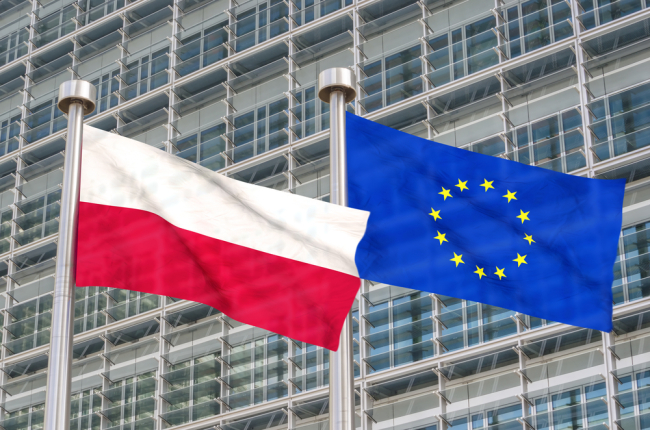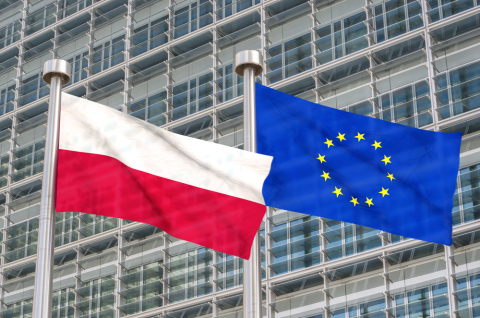
Practical information
Event reserved for our donators.
Find out more about our donor programsThe French-German Future Dialogue 2017 was joined by ten Polish participants in Warsaw for a last seminar on the future risks for Foreign Policy of the European Union. The trilateral foresight workshop in the Weimar Triangle format allowed finalising the risk analysis to be published at the end of the year.

What future risks for Foreign Policy of the European Union? The year group 2017 of the French-German Future Dialogue arrived in Warsaw on an untypically sunny day for October in Warsaw to meet ten Polish participants to find answers to this question in a trilateral foresight workshop
What are the possible scenarios and what practical implications would there be? The French, German and Polish participants worked in small groups on a risk analysis to be published at the end of this year.
At the French Embassy, the group continued the debate on the future of the European Union, on the importance of dialogue and on future challenges with French Ambassador M. Pierre Lévy. A debate in "World Café" format allowed discussing European Defence and Security issues with experts from NATO - the Multinational Corps North East, from PISM and IFRI.
The cultural programme included a guided tour through the old ghetto district by the founder of the 'Stacja Muranow' association and a visit of the famous Palace of culture and science.
Introduction | Polish Politics in 2017 (French-German group)
-
Wojciech Szacki, Senior analyst, Polityka Insight, Warsaw
Reception and debate at the French embassy in Poland
- S.E. Monsieur Pierre Lévy, Ambassador of France in Poland, Warsaw
- Friederike Steglich, Head of the Political Section at the German Embassy in Poland, Warsaw
Foresight Workshop | European Foreign Policy - risk analysis
- Johannes Gabriel, Foresight Intelligence, Berlin
- Barbara Kunz – research fellow Cerfa at Ifri, Paris
- Lieutenant Colonel Boris Schnelle, DEU A – Chief Public Affairs Office, Multinational Corps Northeast, NATO, Szczecin
- Jolanta Szymanska – research fellow, PISM,Warsaw
Round Table | What Common Foreign Policy for the EU ?
Presentation of the results of the participant’s Foresight workshop and conclusions with feedback from:
- Sławomir Dębski – Director of the Polish Institute of International Affairs (PISM), Warsaw
- Frédéric Petit – Deputy of the seventh constituency for French residents overseas (Central Europe, Balkans), Assemblée nationale, Paris




Related Subjects
Other events

Affirming European security in times of uncertainty. Poland’s priorities of its presidency of the Council
Poland will assume the presidency of the Council of the EU throughout the first semester of 2025, when geopolitical tensions are likely to peak.

Paris Naval Conference 2025: Naval Power in support of Maritime Economy
This third edition of the Paris Naval Conference (CNP), bringing together high-level speakers from the military, industry and academia, aims to address the issues of securing the maritime economy for the world's navies.






